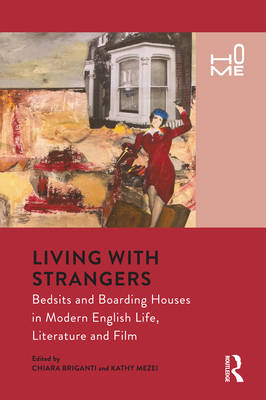
- Afhalen na 1 uur in een winkel met voorraad
- Gratis thuislevering in België vanaf € 30
- Ruim aanbod met 7 miljoen producten
- Afhalen na 1 uur in een winkel met voorraad
- Gratis thuislevering in België vanaf € 30
- Ruim aanbod met 7 miljoen producten
Zoeken
Living with Strangers
Bedsits and Boarding Houses in Modern English Life, Literature and Film
€ 74,95
+ 149 punten
Omschrijving
Living with Strangers examines the history and cultural representation of bed-sitting rooms and boarding houses in England from the early twentieth century to the present. Providing a historical overview, the authors explore how these alternative domestic spaces came to provide shelter for a diverse demographic of working women and men, retired army officers, gay people, students, bohemians, writers, artists, performers, migrants and asylum seekers, as well as shady figures and criminals. Drawing on historical records, case studies, and examples from literature, art, and film, the book examines how the prevalence and significance of bedsits and boarding houses in novels, plays, detective stories, Ealing comedies, and contemporary fiction and film produced its own genre of narrative. The nine chapters are written by an international range of established and emerging scholars in the fields of literary studies, art and film history, political theory, queer studies and cultural studies. A lively, highly original study, Living with Strangers makes a significant contribution to the cross-disciplinary field of home studies and provides insight into a crucial aspect of British cultural history. It is essential reading for students and researchers in anthropology, history, literary studies, sociology, gender and sexuality studies, film studies and cultural studies.
Alleen bij Standaard Boekhandel
+ 149 punten op je klantenkaart van Standaard Boekhandel
Beoordelingen
We publiceren alleen reviews die voldoen aan de voorwaarden voor reviews. Bekijk onze voorwaarden voor reviews.











